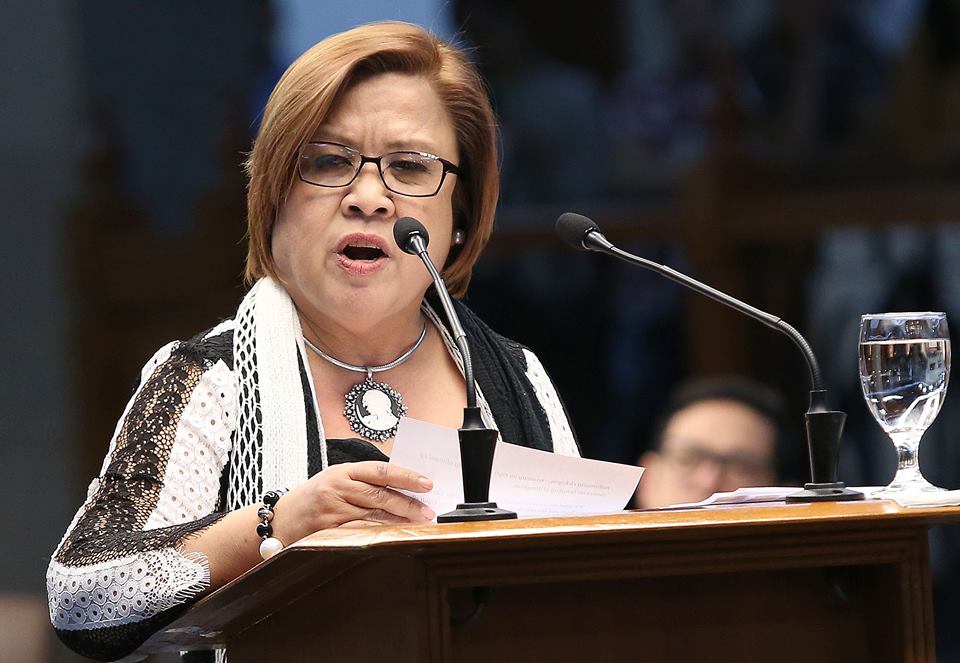
Opposition Senator Leila De Lima on Thursday called for a Senate investigation into the ongoing selection of the third telecommunication (telco) carrier from China that is set to break the duopoly of the two telco giants, PLDT Inc. and Globe Telecom Inc. in March.
In filing Senate Resolution No. 603, the Senator expressed alarm on President Rodrigo Duterte’s partiality to choose a telco firm saying that there must be a “thorough congressional scrutiny.”
De Lima also called on the government for “greater transparency” in the selection process to assure that the security of the country’s information and telecommunication infrastructures against any threats are considered.
“There is a need for greater transparency in the selection process to ensure that all factors are considered, including the matter of national security especially since the President has all but instructed the DICT to pick the Chinese telecom,” she said.
“There must be a thorough congressional scrutiny to ensure that the entry of the new telco player will not jeopardize the security of our information and telecommunications infrastructure,” she added.
Last year, Duterte has publicly announced that he is seeking a third telecommunications firm to operate in the country for the first quarter of 2018 in a bid to force telco giants to improve their services.
Duterte preferred China to become the third telco player in the country. Malacañang, then, said that the Chinese government has chosen China Telecom.
According to her office, the Senator “cited a study conducted by a local brokerage firm, Papa Securities, about the security risks China Telecom brings as its main obstacle for its expansion in the Philippines.”
The study revealed that “there has been 76 state-sponsored cyber-attacks linked with China since 2005, about 75 of which are primarily espionage in nature while 44 of these state-sponsored attacks targeted towards the US during the period.”
“We should not forget that the Philippines has also experienced being on the receiving end of Chinese cyber-attacks,” she added.
De Lima earlier recalled that Chinese hackers rolled out a series of online attacks against the Philippine government networks following the verdict of the UNCLOS tribunal to recognize that the Philippines has exclusive sovereign rights over the West Philippine Sea and that China’s nine-dash line is invalid.
“The breach of these networks follows a string of Chinese cyber-attacks targeting Southeast Asian claimants to the disputed waters, coinciding with times of heightened geopolitical tensions,” she said.
“We cannot easily trust any third player to the Philippine telecommunications market, much less, if it’s China whose interests are diametrically opposed to ours, especially in respect to the West Philippine Sea issue,” she added.
Meanwhile, President Rodrigo Duterte had denied the appeal of Department of Information and Communications Technology (DICT) to delay its action of selecting the third player until May.
Presidential Spokesperson Harry Roque confirmed on January 6 that the President is firm to his timeline that he will name the third telco player in March.
“The President was emphatic and issued a warning to the critics of the entry of third telco player not to test the will of the government,” Roque told reporters.
According to Roque, DICT officer-in-charge Eliseo Rio asked Duterte during the Cabinet meeting on Monday for additional months before the government name the third telco player, but the President rejected the plea.